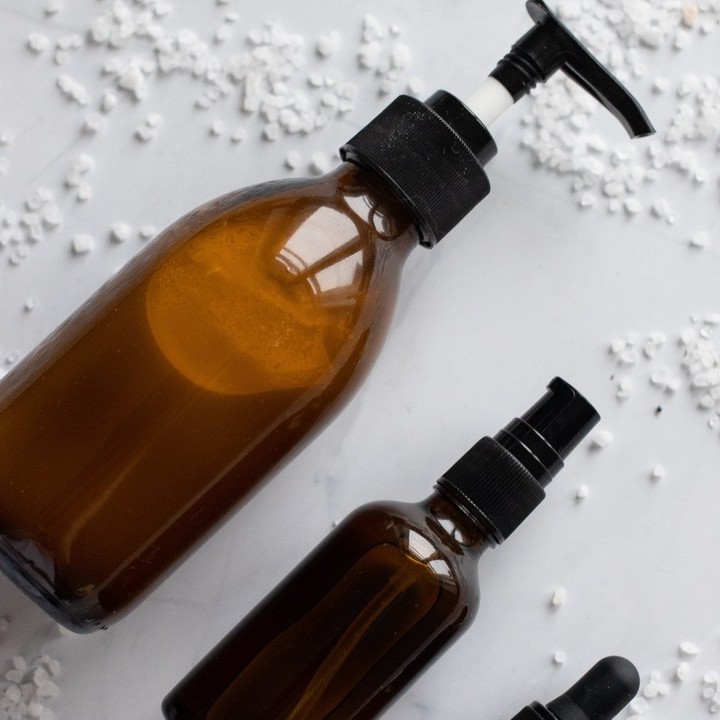
Sensitive Skin: Essential Tips and Effective Skincare Routine
Sensitive skin is a delicate skin type that is prone to reactions and easily irritated by various environmental and skincare factors. In this article, we will delve into the characteristics and specifications of sensitive skin, explore common symptoms and problems, discuss suitable skincare routines, provide tips for maintaining its health, recommend products, and highlight cautionary measures to avoid exacerbating sensitivity.
Skin Specifications
Sensitive skin is characterized by its hyper-reactivity to external factors. It often becomes inflamed, irritated, or experiences discomfort when exposed to certain triggers. Sensitive skin has a thinner epidermal barrier, making it more susceptible to moisture loss and external irritants. It may exhibit redness, itching, dryness, and a tendency to develop rashes or breakouts.
Symptoms and Common Problems
Individuals with sensitive skin commonly experience the following symptoms and problems:
- Redness and Irritation: Sensitive skin often appears flushed or red, especially when exposed to heat, cold, or certain ingredients.
- Dryness and Tightness: Sensitive skin tends to be more prone to dryness, leading to a tight and uncomfortable sensation.
- Allergic Reactions: Sensitive skin may react adversely to skincare products, such as developing rashes, itching, or hives.
- Sensations of Burning or Stinging: Certain environmental factors or harsh products can cause a burning or stinging sensation on sensitive skin.
Suitable Skincare Routine
To care for sensitive skin, consider the following skincare routine:
Gentle Cleansing: Use a mild, fragrance-free cleanser specifically formulated for sensitive skin. Avoid harsh cleansers that may strip away natural oils and disrupt the skin barrier.
Hydrating and Soothing Toner: Apply a gentle, alcohol-free toner to soothe the skin and restore pH balance after cleansing.
Moisturizing with Hypoallergenic Products: Use a fragrance-free, hypoallergenic moisturizer with ingredients like ceramides, hyaluronic acid, or aloe vera to provide hydration and strengthen the skin barrier.
Cantu skin therapy shea butter body cream
Sun Protection: Apply a broad-spectrum sunscreen with at least SPF 30 daily, even on cloudy days, to shield sensitive skin from harmful UV rays.
Tips for Maintaining Sensitive Skin
Here are some essential tips to maintain the health and well-being of sensitive skin:
Patch Testing: Always patch test new products on a small area of skin before applying them to your entire face to check for any adverse reactions.
Avoid Harsh Ingredients: Steer clear of skincare products containing fragrances, alcohol, sulfates, and other potential irritants that can trigger sensitivity.
Be Gentle: Handle your skin with care. Avoid rubbing or scrubbing vigorously and use soft, clean towels when drying your face.
Hydration is The Key: Drink plenty of water to keep your skin hydrated from within, as well as using moisturizers to lock in external moisture.
Recommended Products
When selecting products for sensitive skin, consider the following:
Gentle Cleanser: Look for a mild, non-foaming cleanser that is fragrance-free and formulated for sensitive skin.
Calming Moisturizer: Choose a moisturizer with soothing ingredients like chamomile, oatmeal, or niacinamide to calm and hydrate sensitive skin.
Minimalist Skincare: Opt for products with fewer ingredients to minimize the risk of irritation. Look for labels that indicate "hypoallergenic," "fragrance-free," or “dermatologist-tested.”
Cautionary Measures and Habits to Avoid
To prevent exacerbating sensitivity, be mindful of the following cautionary measures:
Avoid Over-Exfoliation
Limit exfoliation to once or twice a week and optfor gentle exfoliants specifically formulated for sensitive skin.
Hot Water and Extreme Temperatures
Avoid long, hot showers or baths, as they can strip the skin of its natural oils and worsen sensitivity. Additionally, protect your skin from extreme temperatures, such as very cold or windy conditions.
Picking or Popping Pimples
Refrain from picking or popping pimples, as this can lead to inflammation, scarring, and further irritation of the skin.
Stress and Diet
Manage stress levels, as stress can exacerbate skin sensitivity. Maintain a balanced diet rich in antioxidants and essential nutrients to promote overall skin health.
How to keep your skin soft?
Maintaining soft and supple skin requires a combination of gentle care practices and a healthy lifestyle. Here are some effective tips to keep your skin soft:
Cleanse regularly: Wash your face twice daily, once in the morning and once before bed, using a gentle cleanser that suits your skin type. Avoid harsh soaps or cleansers that can strip away natural oils, leaving your skin dry and irritated.
Moisturize consistently: After cleansing, apply a hydrating moisturizer to your face and body while the skin is still damp to lock in moisture. Choose a moisturizer that is non-comedogenic, meaning it won't clog pores, and consider using a product with hyaluronic acid, a natural humectant that attracts and retains moisture.
Exfoliate regularly: Exfoliation helps remove dead skin cells, revealing a smoother and brighter complexion. Aim to exfoliate your face once or twice a week, using a gentle exfoliating scrub or chemical exfoliant. For the body, exfoliate once or twice a month.
Protect from the sun: Sun exposure is a major cause of premature aging and skin damage. Always wear sunscreen with an SPF of 30 or higher, even on cloudy days, to protect your skin from harmful UV rays.
Stay hydrated: Drinking plenty of water helps keep your skin hydrated from the inside out. Aim to drink eight glasses of water per day to maintain healthy skin function and prevent dryness.
Eat a balanced diet: A healthy diet rich in fruits, vegetables, and whole grains provides your skin with essential nutrients that contribute to its health and appearance. Include foods high in antioxidants, such as berries, leafy greens, and nuts, to protect your skin from damage.
Manage stress: Stress can take a toll on your skin, causing breakouts, dryness, and premature aging. Find healthy ways to manage stress, such as exercise, yoga, or meditation.
Avoid smoking: Smoking damages blood vessels and reduces blood flow to the skin, leading to wrinkles, premature aging, and a loss of skin elasticity. Quitting smoking can significantly improve skin health.
Get enough sleep: Sleep is essential for skin repair and regeneration. Aim for 7-8 hours of quality sleep each night to allow your skin to rest and rejuvenate.
Use gentle skincare products: Choose skincare products that are fragrance-free, alcohol-free, and non-comedogenic to avoid irritating your skin. Look for products that are formulated for your skin type, whether it's oily, dry, or sensitive.
Here are some things to avoid if you have sensitive skin:
1. Harsh soaps and cleansers: Harsh soaps and cleansers can strip away the natural oils from your skin, leaving it dry and irritated. Choose a gentle cleanser that is fragrance-free and non-comedogenic (meaning it won't clog your pores).
2. Fragrances: Fragrances are a common irritant for sensitive skin. They can cause redness, itching, and burning. Avoid products that contain fragrances, such as perfumes, colognes, and scented lotions.
3. Alcohol: Alcohol can dry out your skin and make it more sensitive. Avoid products that contain alcohol, such as astringents and toners.
4. Certain ingredients in skincare products: Some ingredients commonly found in skincare products can irritate sensitive skin. These include alpha hydroxy acids (AHAs), beta hydroxy acids (BHAs), benzoyl peroxide, and salicylic acid. If you have sensitive skin, it's best to avoid products that contain these ingredients.
5. Extreme temperatures: Extreme temperatures can also irritate sensitive skin. Avoid washing your face with very hot or very cold water. And be sure to protect your skin from the sun, wind, and cold weather.
6. Exfoliation: Exfoliating can help remove dead skin cells and improve the appearance of your skin. However, it can also irritate sensitive skin. If you have sensitive skin, exfoliate no more than once a week, and use a gentle exfoliating scrub or chemical exfoliant.
7. Touching your face: Touching your face frequently can transfer dirt, oil, and bacteria to your skin, which can lead to breakouts and irritation. Avoid touching your face unless you have just washed your hands.
8. Sleeping on dirty pillowcases: Dirty pillowcases can harbor bacteria and dirt, which can irritate your skin. Wash your pillowcases at least once a week.
9. Stress: Stress can make your skin more sensitive and prone to breakouts. Find healthy ways to manage stress, such as exercise, yoga, or meditation.
10. Smoking: Smoking damages your skin and makes it more sensitive. If you smoke, quitting is the best thing you can do for your skin.
 العربية
العربية





